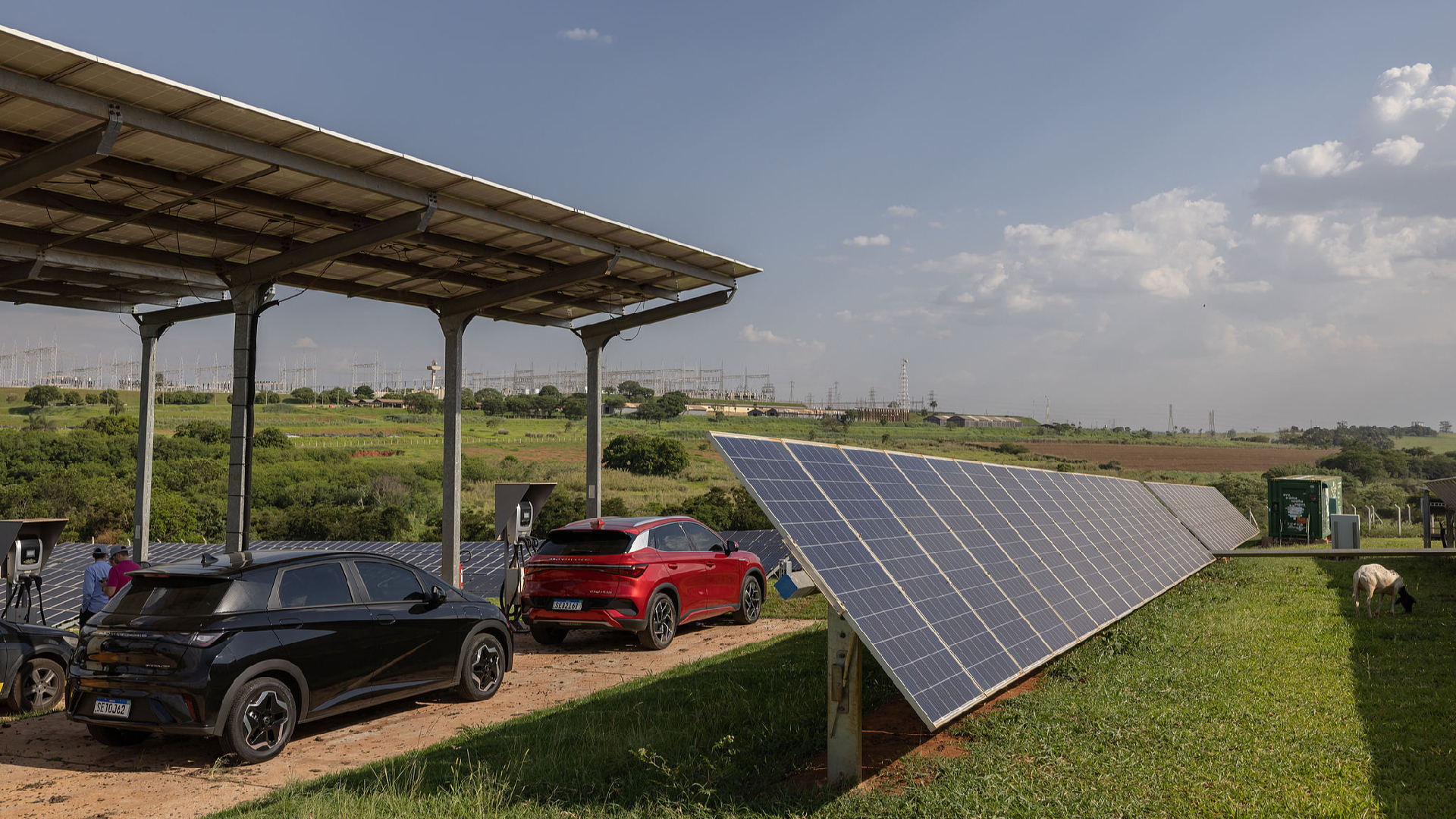China and Latin America Enhance Cooperation in NEV and Renewable Energy
In recent years, a robust partnership has developed between China and Latin American countries to promote new energy vehicles (NEVs), enhancing sustainable energy initiatives throughout the region. This collaboration encompasses everything from electric buses to investments in lithium batteries, facilitating Latin America's shift toward a cleaner energy future.

A notable instance of this partnership can be found in Brazil, where Chinese automaker BYD and the Bahia state government unveiled plans last year for a significant manufacturing complex. This facility, which encompasses three plants, is dedicated to the production of electric buses, trucks, passenger vehicles, and lithium iron phosphate batteries. It aims for an annual output of 150,000 units, including electric and plug-in hybrid models, to enhance Brazil's renewable transport sector.
BYD's involvement in Brazil dates back over a decade, starting with the opening of an office in São Paulo in 2013, followed by an assembly plant for electric buses and lithium iron phosphate batteries in Campinas by 2015. The company has since established additional facilities across Brazil, producing electric bus chassis, solar panels, and batteries, solidifying its role in the country's shift toward electrification in public transport.
The implementation of the "Green Line" rapid transit system in São José dos Campos illustrates this trend. Launched in late 2021, the articulated electric buses developed by BYD have quickly gained popularity among commuters. These electric buses provide a quieter, more comfortable experience, featuring amenities such as USB charging ports. By reducing emissions, they play a vital role in enhancing air quality and fostering sustainable urban growth throughout the region.
Brazil's market for new energy vehicles has experienced rapid expansion, now ranking as the largest foreign market for Chinese-manufactured NEVs. As of April 2024, NEV sales in Brazil topped 15,000 units, reflecting a remarkable 217 percent increase compared to the previous year.
To cater to Brazil's distinct road conditions, BYD made over 100 technical adjustments to its bus designs, ensuring they align more effectively with local demands. This process highlights the necessity of tailoring solutions to Brazil's infrastructure to guarantee efficient performance and durability.
Other Chinese automakers, including Great Wall Motors and Chery, have also modified their strategies to accommodate local markets while utilizing Brazil's resources to develop sustainable NEV solutions. Notably, Brazil stands as one of the leading global producers of alcohol fuel, rendering plug-in alcohol fuel hybrid vehicles an optimal choice for balancing environmental concerns with performance.
Chinese enterprises are actively contributing to the advancement of sustainable energy infrastructure throughout Latin America. In Argentina, known for its significant lithium reserves, Chinese firms are investing in NEV infrastructure to foster long-term growth in the lithium market.
In March 2024, Ganfeng Lithium acquired a 15 percent interest in Argentina's Pastos Grandes lithium project, strengthening local resources and providing vital financial support for development. A report by the Stockholm-based Institute for Security and Development Policy in August stated, "This move illustrates the willingness of Chinese companies to support the long-term development of Argentina's lithium market."
In Chile, cooperation has manifested in the deployment of Chinese-manufactured electric buses in cities such as Rancagua and Antofagasta. In May 2024, a shipment of electric city buses from Zhongtong Bus Holding was delivered to Rancagua, with President Gabriel Boric personally endorsing the initiative as a critical step toward enhancing urban mobility and improving air quality.
In 2023, 40 new electric buses were introduced in Antofagasta, representing a significant advancement in Chile's initiative to electrify its public transportation system. The country has set ambitious electrification goals, aiming to convert its entire fleet of public transport buses and the majority of private vehicles to electric by 2050.
Beyond the vehicle sector, Chinese firms have also been instrumental in furthering Latin America's renewable energy infrastructure. Brazil's Marangatu Solar Complex, funded by China's State Power Investment Corporation, commenced operations in June 2024. This solar project is expected to provide power to around 550,000 homes annually, greatly enhancing Brazil's renewable energy capacity.
The ongoing collaboration between China and Latin America in the fields of new energy vehicles and renewable energy demonstrates a mutual commitment to fostering a sustainable future. By championing NEVs and expanding renewable energy infrastructure, both parties are making significant progress toward reducing carbon emissions, enhancing urban lifestyles, and contributing to a global transition to cleaner energy.
Emily Johnson contributed to this report for TROIB News
Discover more Science and Technology news updates in TROIB Sci-Tech












